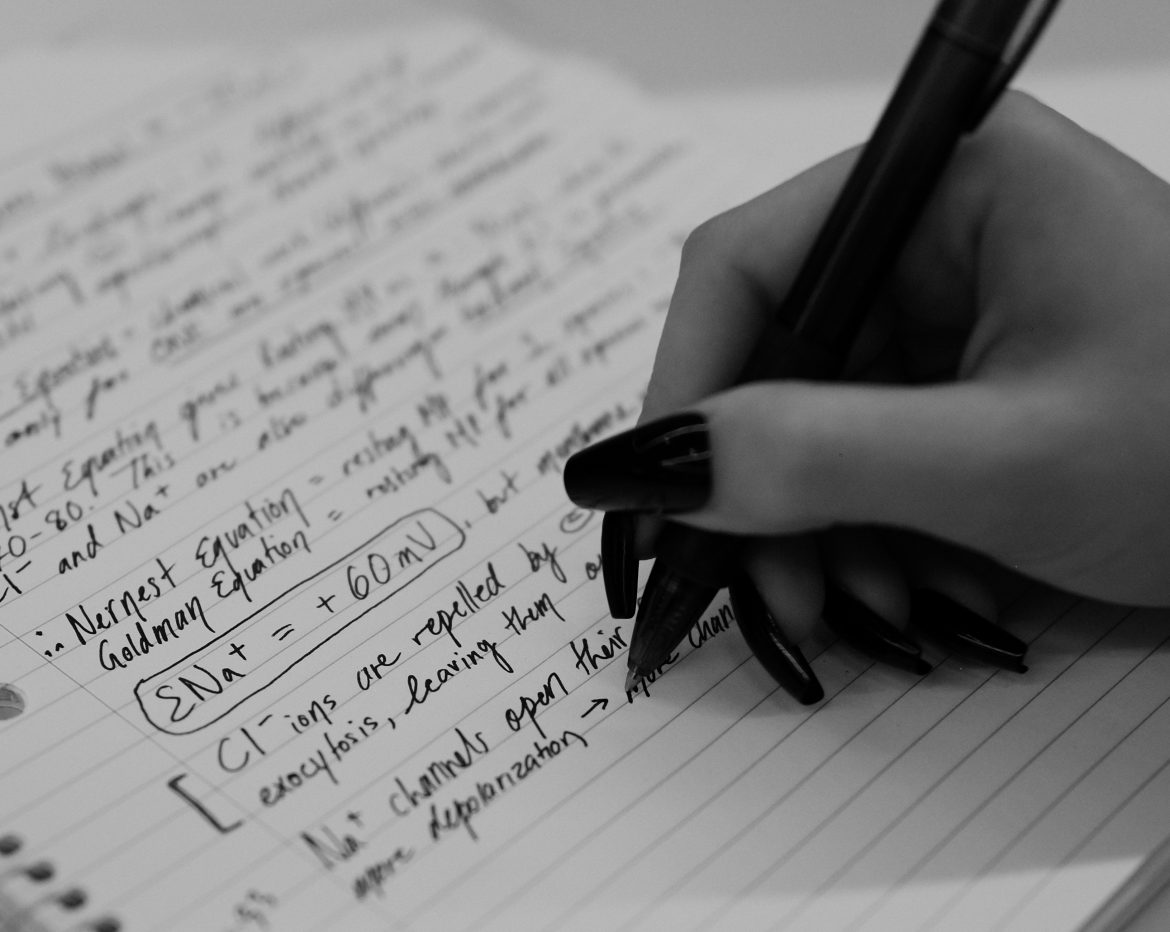Why writing — not typing — is the best way to ace your class notes.
Adriano Portincasa, Contributor
Most of us prefer our laptops and tablets for taking notes. Why not use a pen and paper? Typing is faster! We can add, delete, copy, paste, highlight, search, and do almost anything to our notes. Autocorrect and spell-checking save us the trouble of remembering what words look like, and the infinite wisdom of the internet is only a tab away.
But what if these blessings are actually curses? What if taking notes the traditional way is better? Here are four reasons why writing — not typing — is the best way to take notes.
First, screens are too distracting. We’re constantly bombarded with notifications, messages, reminders, and emails. Most things in a lecture are only said once or twice, but by the time we’ve sent our messages and scrolled through social media, something important in the lecture has been missed that might come back to haunt us on the exam.
Notifications can be turned off, but they can also be turned back on. The infinite rabbit hole is only a button away, and it’s far too easy to fall in. By switching to pen and paper, it forces our attention on writing itself without all the background noise of sports, shopping, news and videogames. We might start to scribble and draw, but unlike the internet, a sheet of paper has its limits.
Second, writing is slower. In an age of short attention spans and high-speed internet, this may sound like a bad thing. But the slower pace of writing stops us from copying down everything the instructor says, a common pitfall that leaves us overwhelmed in the study process. Writing forces us to follow the flow of argument, absorb the main points, and translate it into fewer words. This simplifies the study process by narrowing our focus and concentrating on what matters most. Less is more — and it’s easier to remember.
Third, writing sharpens our mind. Paper has no autocorrect or spell-checker, and an overreliance on these tools can seriously lower our writing and cognitive capacities. We can be very confident in our writing with the help of those colourful, squiggly lines under every mistake. But once exam season comes around and we’ve lost access to those training wheels, it’s easy to forget how many M’s are in “accommodation” and whether the moon is “further” or “farther” than the sun. If we start practising these skills every time we take our notes, we can build that confidence and independence in preparation for those critical moments.
Finally, writing is more practical. Paper doesn’t cost hundreds of dollars if it breaks, nobody is going to steal it when you’re not looking, it’s lighter to carry around campus, and it doesn’t have any batteries that will die mid-lecture.
So is writing better for taking notes? It helps us to build the necessary skills to retain and organise information well, all while saving us from the unnecessary expenses, worries, and distractions of our screens. If that sounds like a good deal to you, then it might be time to give it a try.
Photo Credit: Aiden Fung




